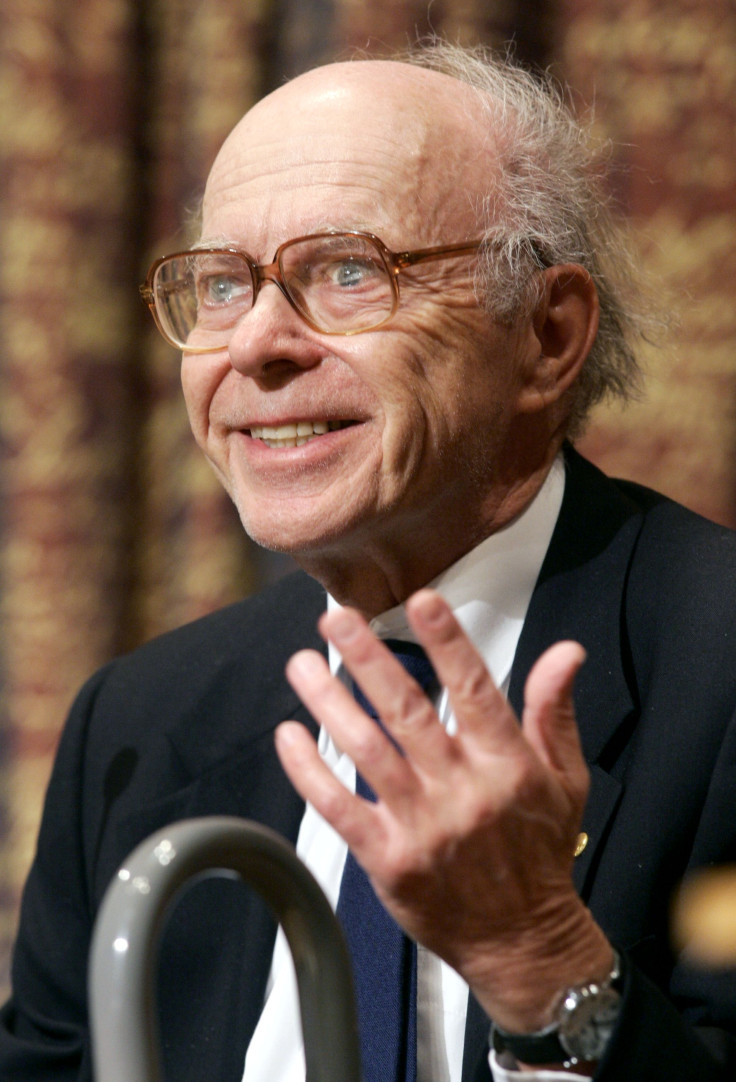Irwin Rose, 2004 Nobel Prize Winner Dies At 88

Biochemist and Nobel laureate, Irwin Rose died in his sleep early Tuesday in Deerfield, Massachusetts, confirms Janet Wilson, the spokeswoman at University of California, which he was associated with. He was 88.
The Brooklyn born researcher's efforts to unveil the mystery behind the identification of old and damaged proteins by our body cells and transforming them into new ones won him the 2004 Nobel Prize in Chemistry. He shared the prize with Israel Institute of Technology researchers Aaron Ciechanover and Avram Hershko for his ground-breaking work that led to the development of a new class of drugs to fight diseases such as cervical cancer and cystic fibrosis.
The particular phenomenon as to how the living cells recycle and dispose of the unwanted proteins has been described as a molecular “kiss of death”, a cellular process wherein a polypeptide called ubiquitin marks unwanted proteins for destruction by latching onto them. The Royal Swedish Academy of Sciences said in its Nobel citation that any biochemical errors in this process of degradation can lead to diseases such as cystic fibrosis and cervical cancer since it governs the vital functions such as cell division, DNA repair and quality control of newly produced proteins. Also, the process has an important role in the body's immune defense against diseases.
University of California Chancellor Howard Gillman says, “He had a formidable intellect and unwavering curiosity about fundamental biological and chemical processes that are the foundation for life. His findings of the 'kiss-of-death' mechanisms inside cells proved revolutionary, transforming the field of cell biology and ultimately fostering a new understanding of the molecular activity present in cancer and other diseases."
Rose was born in Brooklyn, New York, in the year 1926.He earned his doctoral degree at the University of Chicago in 1952 while he spent most of his career at the Fox Chase Center in Philadelphia. It was in the year 1997 that he took up the research position at the University of California, Irvine in the department of physiology and biophysics. A long-time friend of Rose, Ralph Bradshaw, a UC Irvine professor emeritus of physiology & biophysics says, “Rose's intelligence and knowledge were in the stratosphere compared to the rest of us in the field and he was always willing to provide hands-on help to students and researchers struggling with experiments.”
To contact the writer, email:ruchira.dhoke@gmail.com





















